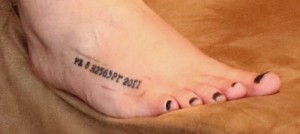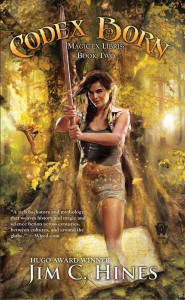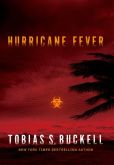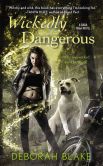Rose Lemberg was born in Ukraine, and lived in subarctic Russia and Israel before immigrating to the US. Her prose and poetry have appeared in Strange Horizons, Apex, Beneath Ceaseless Skies, Unlikely Story, Daily Science Fiction, and other venues. She edits Stone Telling with Shweta Narayan. Rose has also edited two anthologies: Here, We Cross, a collection of queer and genderfluid poetry from Stone Telling (Stone Bird Press, 2012) and The Moment of Change, an anthology of feminist speculative poetry (Aqueduct Press 2012). Rose can be found at roselemberg.net, Livejournal, and Twitter.
Her newest project, An Alphabet of Embers, will be a professional-paying anthology of “unclassifiables – lyrical, surreal, magical, experimental pieces that straddle the border between poetry and prose.” As of today, it’s within a few hundred dollars of being fully funded.
I’m happy to welcome Rose to the blog to talk about diversity and what looks like a beautiful project.
#
 I am very grateful to Jim Hines, who invited me to write about everyday diversity in connection with my new editorial project, An Alphabet of Embers.
I am very grateful to Jim Hines, who invited me to write about everyday diversity in connection with my new editorial project, An Alphabet of Embers.
Fundraising for diverse anthologies has become something of a trend in SFF, with wonderful, successful projects such as Long Hidden and Kaleidoscope, and painful failures such as Spellbound/Spindles. In the best case scenarios, editors are clueful about encouraging a truly diverse pool of submitters, and choose brilliant stories to challenge and inspire readers; worst case scenarios leave behind them disappointment and bitterness. Since I am currently fundraising for a new fiction project, An Alphabet of Embers, this topic has been much on my mind.
An Alphabet of Embers does not have the word “diverse” in its subtitle. I have envisioned the project as an anthology of very short, surrealist, magical, lyrical pieces that would delight their readers with beauty and meaning. I did, however, end up talking about diversity a lot in conjunction with this project – everyday diversity, which is the topic of my blog post today.
I co-edit Stone Telling, a magazine of boundary-crossing poetry, with Shweta Narayan. When I founded Stone Telling in 2010, I did not envision the magazine as specifically a diversity venue – but I wanted personal, emotional, experimental poetry that pushed the boundaries of genre. I also knew from the get-go that I wanted diversity of both voice and theme – I wanted to work with more PoC poets, more LGBTQIA poets, and others; I wanted to encourage new poets and discover published voices unknown to me, alongside those already established. So, from the very first issue, diversity became a cornerstone of Stone Telling. Not only did we encourage, and continue to encourage, new voices, but we also showcased voices of people who’ve been in genre for a very long time and deserve much greater recognition; e.g., it baffles me why JT Stewart is not more widely known – her work is so powerful.
An Alphabet of Embers is my first prose project. While it is not a diversity-themed anthology, I strongly feel that every project of mine must be diverse (c.f. not only Stone Telling, but The Moment of Change and Here, We Cross), showcasing a range of marginalized as well as non-marginalized voices. While I strongly believe in the power of special issues, I feel that everyday diversity is extremely important.
Here are some thoughts of how to cultivate everyday diversity:
Trust. The more marginalized an author is, the harder this trust is to come by. Even the most well-meaning editors don’t always get your marginalizations; every diverse author I talked to has a horror story of a personal rejection that perpetuated oppressions, of a lack of understanding of harmful clichés, of dismissiveness.
Earning your readers’ and submitters’ trust doesn’t mean that you don’t fuck up. It’s impossible to never fuck up, or at least, I don’t think it is a worthwhile aspiration. It’s the reaction to being called out that matters. My advice to editors is this: don’t get defensive, don’t try to explain/justify what you did. Instead – listen. Consider. Go for some empathy. Talk to others – especially people from demographics different from you. Educate yourself about issues that matter to people different from yourself.
Trust is built through your work – your work with submitters, whether you accept or reject them, and the finished products you put out into the world. Your finished products will speak to your principles and your editorial aesthetic. Your body of work – as an editor, writer, speaker – keeps building up. Trust is organic and evolving.
Accept that diversity is not a zero-sum game. This applies to readers, writers, and editors alike. We benefit from a greater variety of voices, writing, publications, venues – and this growth in the field challenges us as editors and writers to do better. (I am hoping to write more about this topic soon).
Consider issues of power. Who benefits from your editorial work? Whose voices are you showcasing? Whose voices are missing from your work? What are you missing, as a reader as well as an editor? Do you stick to comfortable and/or hegemonic narratives, or are you willing to challenge yourself?
Make an effort to include diversity of voice and theme. Diversity of voice is about including authors from different demographics – authors of color and white authors, authors who identify as LGBTQIA and those who do not, neuroatypical and neurotypical authors, etc. Diversity of theme is about showcasing characters who belong to different demographics, as well as different cultural settings. When we limit ourselves to diversity of theme alone, we may get things like all-man panels on feminism in genre. When we limit ourselves to diversity of voice alone, we run the risk of making marginalized people write only about non-marginalized perspectives; e.g. a queer author would make it into a ToC, but only if they write about straight people. A mix between theme and voice also helps to avoid tokenization.
I have written two more entries on this topic:
The submission guidelines for An Alphabet of Embers are here. We have some fabulous rewards, like custom essays and poetry, an additional chapbook of science poetry featuring forgotten figures of science and technology, custom treasure boxes, songs, and more; and we will soon unveil stretch goals with letterpress-printed broadsides, illustrations, a song by the Banjo Apocalypse Crinoline Troubadours, and a joke issue of Stone Telling! If you’re looking for beauty and wonder, An Alphabet of Embers is for you.
 Merrie Haskell won the Detcon1 award for middle grade literature last month for her book Handbook for Dragon Slayers [Amazon | B&N | Mysterious Galaxy]. That book also earned her the Schneider Family Book Award for Middle Grades (for “artistic portrayal of the disability experience”).
Merrie Haskell won the Detcon1 award for middle grade literature last month for her book Handbook for Dragon Slayers [Amazon | B&N | Mysterious Galaxy]. That book also earned her the Schneider Family Book Award for Middle Grades (for “artistic portrayal of the disability experience”).










 Okay, it’s not a brand new book, but it is the mass market release of Codex Born, coming on August 5. And with that release, the ebook price should also be dropping very soon.
Okay, it’s not a brand new book, but it is the mass market release of Codex Born, coming on August 5. And with that release, the ebook price should also be dropping very soon. I am very grateful to Jim Hines, who invited me to write about everyday diversity in connection with my new editorial project,
I am very grateful to Jim Hines, who invited me to write about everyday diversity in connection with my new editorial project,  Wickedly Dangerous
Wickedly Dangerous